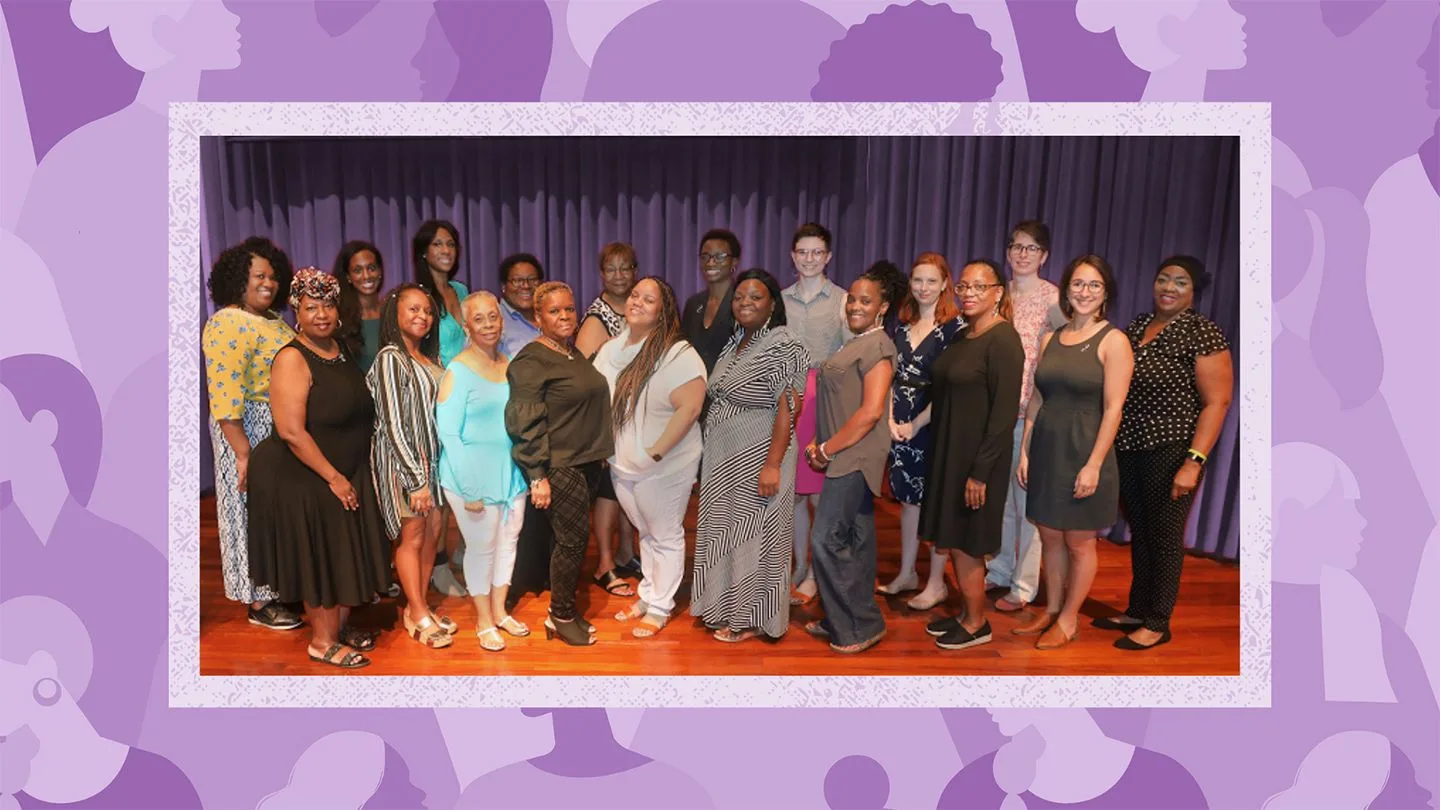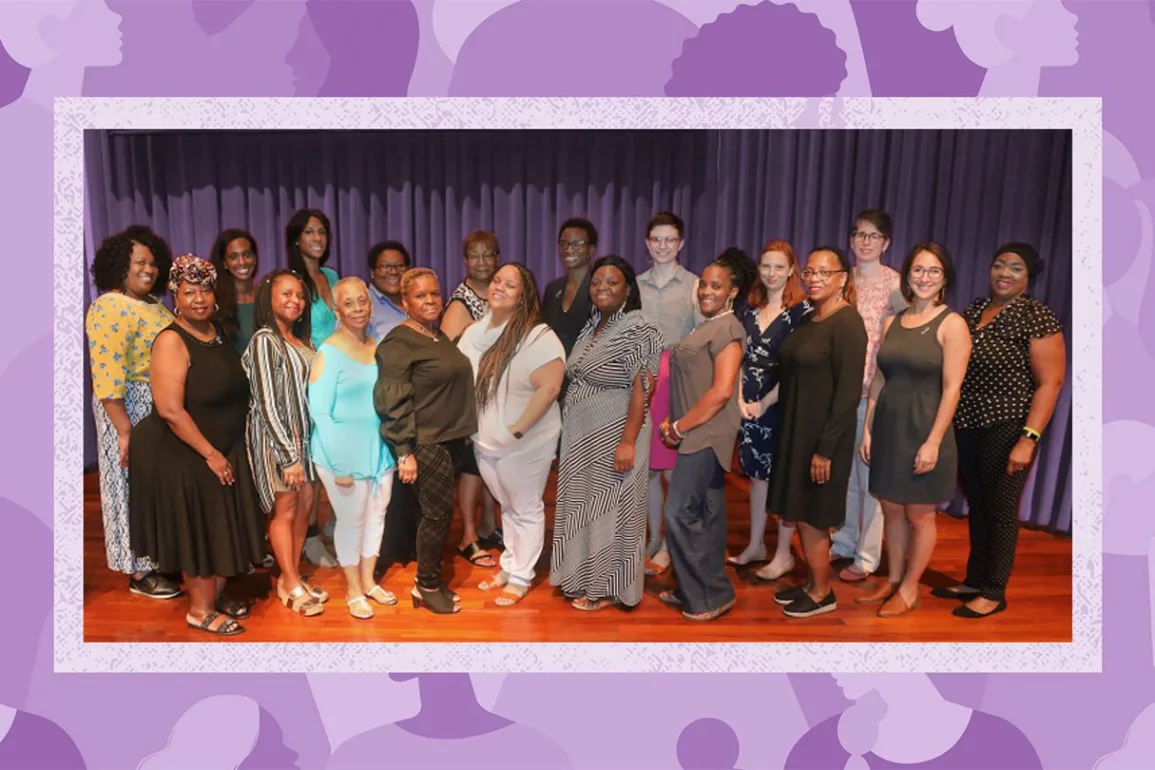
For six years, Kemi Doll, MD, a gynecologic oncologist at UW Medicine in Seattle, has been treating Black women with endometrial cancer. In that time, she noticed some stark differences between Black and white women.
One such distinction was the timing of diagnosis — Black women often came in to be diagnosed at a later stage than their white counterparts, and a later diagnosis meant the condition was less treatable.
Dr. Doll saw many Black women who had pushed aside their symptoms because of cultural stigmas surrounding healthcare, or hadn’t been appropriately screened due to lack of adequate medical care.
Doll also saw that Black women didn’t have much community support after their diagnosis.
In an effort to address these disparities, Doll cofounded the Endometrial Cancer Action Network for African-Americans (ECANA) in 2017. Since its inception, Doll has recruited other Black women who have a passion for spreading awareness about endometrial cancer to join her cause.
Today, ECANA acts as a supportive community for Black women diagnosed with endometrial cancer, and is dedicated to educating the population on the disease, as well as ensuring that Black women are represented in clinical trials related to endometrial cancer.
Their Goal
ECANA’s goal is to give Black women a place where they can ask all their questions, describe their symptoms without fear of judgment, and feel connected with a group of women who know exactly what they’re going through.
“So often in Black communities, we don’t talk about the things that are the most important to us when it comes to our reproductive health,” says Adrienne Moore, a board member at ECANA, and an ovarian and endometrial cancer survivor. “There’s silence around that.”
Services They Provide
ECANA provides local, in-person community support for women at risk for endometrial cancer. They hold educational sessions in their area, and speak with women in their circles about the risks and warning signs. To participate in one of their support groups, you can email info@ecanawomen.org to find one near you.
Every other week, ECANA holds an online chair yoga and conversation hour for anyone who wants to join. This time is unscripted and women who are more shy to share often feel empowered to speak up after getting to know the other women, Moore says. If you’d like to participate, you can register through their website.
ECANA also encourages Black women to be more engaged in clinical trials. Doll even created her own study when she realized how underrepresented Black women were in cancer research. “[Doll] wanted to study why Black women were dying of endometrial cancer more than any other race,” Moore says.
Her study, published 2018 in the Journal of Community Health, focused on education and community support for Black women at risk for or diagnosed with endometrial cancer. She found that these two pillars improved early diagnosis and resulted in higher survival rates.
Teaching early symptoms and risk factors can save lives, especially when using culturally relevant materials, and sometimes, treatment costs can be partially covered if they are part of a trial, Moore says. Those interested can contact ECANA to ask about specific research opportunities.
Education is key, and ECANA has several resources, as well as a quarterly newsletter, to help you learn more about endometrial cancer. “You may pick up a brochure, but If it doesn’t look like you, you may think it doesn’t pertain to you,” Moore says. You can find these educational tools, along with personal patient stories, on their website.
“We want to make sure everyone knows all the resources available to them,” Moore says. “And that they’re not left out just because they don’t live in the right ZIP code.”
Events
ECANA held their first national conference, the ECANA Conference for Community, Education, and Research Training, in 2019 in Honolulu, where researchers, policy advocates, and ECANA ambassadors gathered to collaborate on how to advance research and awareness on endometrial cancer in the Black community.
For Uterine Cancer Awareness Month this June, ECANA partnered with the International Gynecologic Cancer Society to advocate for more education and early diagnosis for endometrial cancer. ECANA also shared educational resources on their social media, on top of hosting an online open house, where people were free to drop in, meet the team, and learn more about endometrial cancer. The event also featured music, games, and giveaways.
If you’d like to stay up to date with all of ECANA’s upcoming events, you can follow them on Twitter or Instagram @ecanawomen.
Core Belief
“ECANA’s overall mission is to build a visible and viable community for Black women with endometrial cancer to be empowered to share their story,” Moore says.
“To show how strong they are in living — and sometimes in dying — but also to know that they matter. Your story matters. Your life matters. Your representation matters. And we just need to talk about that.”



